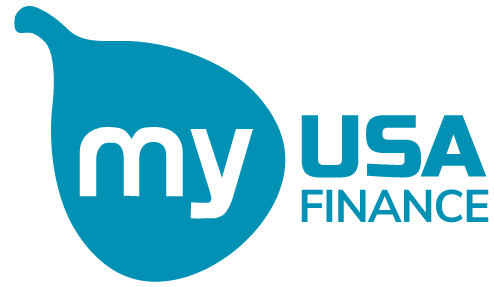If you’re looking for a financial tool to help manage your debt, installment loans may be the solution you’ve been searching for. But what exactly is an installment loan? Simply put, it’s a financial tool that allows you to borrow money and pay it back in equal monthly installments
The most common type of installment loan is a personal loan, but there are other types available, such as mortgages, and auto loans.

Looking for a Personal Loan?
Explore your options today!
What is an Installment Loan?
An installment loan is a type of loan where you get a lump sum of money all at once and then pay it back in equal monthly payments over a set time. Unlike credit cards, the payment and interest rates are fixed.
This type of loan offers fixed repayment terms and interest rates, providing security in knowing exactly what you owe and when it’s due.
How Do Installment Loans Work?
When you take out an installment loan, you’ll receive a specific amount of money upfront. You are then required to make regular monthly payments. Each payment is split between paying back a portion of the principal – or the original amount borrowed – and the interest that’s been added to the loan.
Depending on the terms of the loan, this repayment schedule can last anywhere from a few months to several years, until the loan is fully paid off.
Types of Installment Loans
Installment loans are available in different types, each suited for various financial needs. Here’s a look at some common ones:
Personal Loans
These loans from banks, credit unions, or online lenders offer a large sum of money for a variety of uses like home repairs, car fixes, or consolidating debts. They generally have fixed interest rates and repayment periods of 24 to 72 months, making them appealing for many.
Pros:
- Fixed interest rate
- Stable monthly payments
- Versatile use of funds
Cons:
- Interest rates can vary
- May include origination fees and prepayment penalties
No-Credit-Check Loans
Offered by payday lenders, these are for people with lower credit scores. They don’t need a credit check and are useful in emergencies, typically being short-term with high-interest rates.
Pros:
- No need for a credit check
- Quick approval
Cons:
- High interest rates
- Short repayment period
Mortgages
Used for home purchases, these long-term loans usually last 15 or 30 years. They have fixed interest rates and are secured by the home, leading to potentially lower rates.
Pros:
- Steady interest rate
- Long payment term
- Generally lower interest rates
Cons:
- Long-term financial commitment
- Risk of losing home if payments are missed
Auto Loans
These help finance a vehicle purchase. Usually, you make a down payment and then monthly payments. Good credit can secure better rates.
Pros:
- Initial down payment, not full cost
- Fixed monthly payments
- Can improve credit score
Cons:
- Risk of car repossession if payments are missed
- Car value decreases over time
Student Loans
These support students’ education costs and come in federal and private forms. Federal loans often have fixed rates and benefits like forgiveness programs.
Pros:
- Accessible without credit check
- Consistent interest rates
- Different repayment plans
Cons:
- Long-term repayment
- Can accumulate a lot of interest
Buy Now, Pay Later Loans
These allow you to purchase items and pay in interest-free installments over a period. While convenient, they can lead to overspending.
Pros:
- No interest charges initially
- Breaks down big purchases
- Simple approval
Cons:
- High rates if not paid on time
- Can encourage spending too much
Pros and Cons of Installment Loans
Installment loans, like any financial product, have both benefits and drawbacks. Here’s a breakdown:
Pros of Installment Loans:
- Consistent Monthly Payments: Monthly payments remain the same throughout the loan term, making budgeting easier.
- Credit Score Improvement: Making payments on time can boost your credit score.
- Refinancing Opportunities: If interest rates drop or your credit score improves, refinancing can lower monthly payments or shorten the loan term.
Cons of Installment Loans:
- Consistent Monthly Payments: Monthly payments remain the same throughout the loan term, making budgeting easier.
- Credit Score Improvement: Making payments on time can boost your credit score.
- Refinancing Opportunities: If interest rates drop or your credit score improves, refinancing can lower monthly payments or shorten the loan term.
Should You Get an Installment Loan?
As with any financial decision, it’s important to thoroughly evaluate your situation before committing. For those looking to consolidate high-interest debt or make a big-ticket purchase, an installment loan could provide the necessary funds with predictable monthly payments.
However, individuals with low credit scores may need a co-signer to secure better rates.
Also, it’s very important to pay on time so you don’t hurt your credit score. In the end, only you can decide if getting an installment loan is a smart move for your finances.
Looking for a Personal Loan?
Explore your options today!
Where to Get an Installment Loan?
You can get installment loans from different places like banks, credit unions, and online lenders. Each place has different kinds of loans with their own rules and conditions.
Banks usually have strict rules for lending, but online lenders might make the process easier and give you the money faster. It’s a good idea to look at offers from several lenders and use tools that let you check if you qualify beforehand, so you can find the loan that fits your needs the best.
Read More: I Need A Loan But Keep Getting Declined: What To Do
How to Get an Installment Loan
If you’re considering an installment loan, here are steps to help you navigate the process effectively:
- Compare Lenders
Different lenders have their own ways of checking loan applications and setting interest rates. To find the best option, look at loans from many lenders. Also think about other ways to borrow, like low-interest credit cards or lines of credit, especially for big expenses.
- Pre-Qualify
Before you actually apply for an installment loan, try to get pre-qualified for a personal loan or pre-approved for a mortgage. This lets you see possible loan amounts, rates, and monthly payments without hurting your credit score. It’s a good way to understand how the loan might affect your budget.
- Boost Application Odds
If you face challenges qualifying for a loan or securing a favorable rate, you can explore joint or co-signed loans or offer collateral to secure an unsecured loan. These strategies may increase your chances of approval or help you obtain more favorable loan terms.
- Apply
You can apply for installment loans from places like banks, credit unions, and online lenders. The time it takes to apply depends on what kind of loan you’re getting and which lender you choose.
Final Thoughts: What Is An Installment Loan, And How Does It Work?
Installment loans can be a useful financial tool for anyone looking to manage their finances in a structured and predictable way. With fixed interest rates, set repayment terms, and the potential to improve credit scores, these loans offer significant advantages for those who borrow responsibly.
However, it’s important to be aware of the potential drawbacks, such as high costs for poor credit, long repayment periods, and inflexible payment amounts. Take time to compare lenders, review your financial situation, and consider alternatives before making your final decision.
FAQ's - Bad Credit Loans
Timely payments improve your credit score, while missed payments harm it. An initial credit check might slightly lower your score temporarily.
Alternatives include credit cards, personal lines of credit, and emergency savings funds, depending on your credit situation and financial needs.
Compare interest rates, fees, terms, and monthly payments from different lenders. Consider your financial situation and the loan’s purpose.
Missing a payment may result in late fees, increased interest rates, a negative impact on your credit score, and potential legal action.
Many lenders allow early repayment without penalty, but some may charge fees. Check your loan agreement for specific terms. Early repayment can save on interest.










